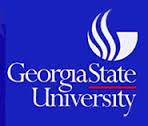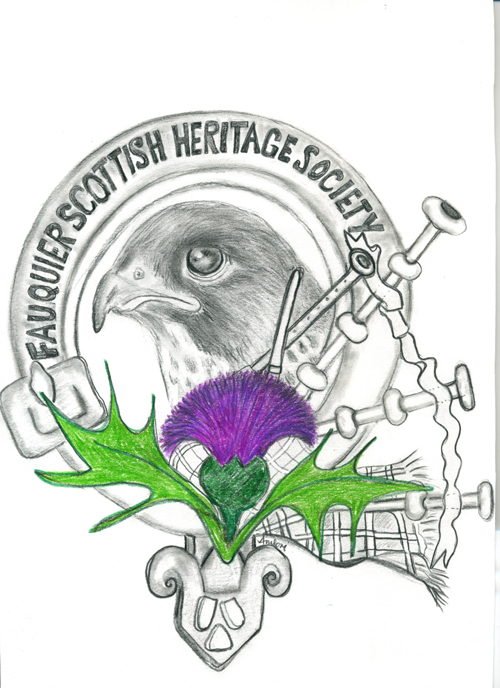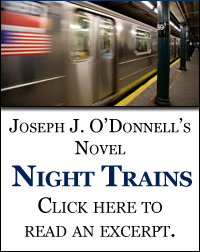 TAEM- The Arts and Entertainment Magazine has covered many subjects, and personalities, in the field of writing. From interviews with such authors as Raymond Benson (six James Bond novels) to every aspect of writing. This included screenplays, novels, short stories, poetry , and plays that the many college students who follow our publication can refer to. There is another segment of the writing field that is most important to human communication, and that is journalism.
TAEM- The Arts and Entertainment Magazine has covered many subjects, and personalities, in the field of writing. From interviews with such authors as Raymond Benson (six James Bond novels) to every aspect of writing. This included screenplays, novels, short stories, poetry , and plays that the many college students who follow our publication can refer to. There is another segment of the writing field that is most important to human communication, and that is journalism.
We are therefore very excited to introduce an award winning journalist, Mridu Khullar Relph, to all our student readers.
Mridu, you have lived in Asia, Africa, and North America and your reporting is highly regarded. Tell us about your early beginnings and what caused you to taking up journalism as a career.
MKR- Short story: I failed my first year in college, so I started freelancing to prove to myself that I wasn’t completely useless.
Longer story: I’ve had some incredible teachers in my life who may not have pushed me into writing, but gave me so much encouragement and praise that when I hit upon hard times, their voices rang in my head. In first or second grade, when I was growing up in London, a teacher liked my short story so much, she made it into the annual school play. Back in India, my English teacher would often read my essays and stories out loud in class as examples of good writing.
I grew up a voracious reader and actually did write some “novels” in my spare time at age twelve or thirteen. Thanks to the early encouragement I got, by the time I was in college, I knew I was a good writer. I just didn’t know at the time that making a career of it was an option.
So when I failed, I fell back on that encouragement and advice. By the time I graduated college, I was making a living with my work. TAEM- Who was your inspiration to do so and what events led up to your first project ?
MKR- As I mentioned, I failed my first year in college. Because I thought I could write, I decided to look up how I could become a stringer for a local newspaper. Instead, I found pages upon pages of how to make a career as a freelance writer. I ditched my original stringer idea and pitched a story on how to survive failure in college to an American magazine. That netted me a quick $100 and a lifetime addiction to being paid for my words.
TAEM- Please tell our student readers about some of the schooling that you took up for your career.
MKR- I suppose that’s the beauty of freelance journalism. If you’re a good writer, willing to learn about the market and do your homework, you don’t actually need formal qualifications. I studied Information Technology in college, but I hated it, so I started writing on the side. Even before I’d graduated, I’d started making a living with my work, so I continued. In 2008, six years after I became a freelancer, I was invited by the University of California, Berkeley, to be a Visiting Scholar at the school. That’s been my only brush with formal education in relation to journalism.
TAEM- As a free-lance journalist, what freedoms do you enjoy in your work that other journalists do not ?
MKR- I can say no.
I can say no to assignments I’m not particularly interested in. I can say no to people who’re offering me low rates for my work. I can say no to getting up at 9 in the morning. I can say no to early-morning commutes, airless cubicles and working on lovely summer days like today when it’s a crime to be holed up in the office instead of being in the fresh air outside. (Though I’m a hermit, so I might end up doing that anyway!)
 TAEM- You have contributed to such well-known publications such as Time, the New York Times, the International Herald Tribune, Global Post, Ms., and the Christian Science Monitor to name a few. You are also a contributing editor at Elle, India. What awards have you won for your work with them ?
TAEM- You have contributed to such well-known publications such as Time, the New York Times, the International Herald Tribune, Global Post, Ms., and the Christian Science Monitor to name a few. You are also a contributing editor at Elle, India. What awards have you won for your work with them ?
MKR- A couple of years ago I wrote a series of stories on waste pickers in Delhi, and how their very survival was being threatened by the fact that Delhi was set to host the Commonwealth Games and the government was looking to “beautify” the city by making these waste pickers invisible and privatizing the whole process. One of those pieces won the Silver Excel from the Society of National Association Publications (USA), a coveted trade magazine award. Another earned me a “Development Journalist of the Year” award from the Developing Asia Journalism Awards Forum in 2010.
TAEM- Tell us about some of the stories that you wrote on during your travels that you feel that most contributed to change in the world that we live in.
MKR- When I was getting my feet wet in journalism, I decided to travel around India, interviewing women, gathering their stories, and selling those pieces to Indian and Western publications. For a year, I concentrated solely on telling the stories of these women’s lives. They were published in a variety of ways—as issues, as trends, even as profiles—but at the center of each story was a woman. I was very inspired by these women who, because of their first steps and initially small efforts, were changing entire communities. There was the first UN-only peacekeeping mission from India that went to Liberia, there was a couple who started a woman-only newspaper, there’s the lady who started a marriage bureau for HIV positive people, and so many more.
I loved reporting and writing those stories, especially right at the beginning of my own journey, because it proved to me that you don’t have to take giant leaps to make big changes. That series of articles was definitely some of the most inspiring work I’ve done.
TAEM- You have contributed reports to the many publications that you worked with. Please tell us about these many stories and where they appear.
MKR- I’m easily bored so I work with a wide variety of publications and topics. I’ve covered social issues, women’s issues, business, travel, politics, and health. One of the things I love about freelancing is that I can get to learn about anything under the sun straight from the mouths of experts. When I was at the peak of my geekiness, I wrote about how mobile phones are designed (a designer from Nokia told me he would sometimes sit near a waterfall to get inspiration) and last, year at nine months pregnant, I wrote about how a father’s brain changes with the birth of his child. That’s what keeps journalism–especially freelance journalism– interesting.
TAEM- We also understand that some of your work appears in Chicken Soup for the Pre-Teen Soul II, and Voices of Alcoholism . Please tell us about this aspect of your writing and any plans that you may have for it in the future.
MKR- As journalists, we tell other people’s stories and while that is something I love to do, I think there are parts of our own lives that shape who we are and what we do. I love reading about people’s lives, their feelings– maybe that’s why I’m a fan of blogging– and personal essays are one way to explore that avenue. The Modern Love column in the New York Times’ Style section is one of my favorite reads.
I would love to write a book of personal essays one day, Anne Lamott-style.
TAEM- We have also found out that you publish a personal blog. Please describe this publication and where our readers can find it.
MKR- Yes, I blog at www.mridukhullar.com/journal, which is really an everyday journal of life and work as a female freelancer from the developing world, in which I talk about writing, deadlines, procrastination and all kinds of writerly challenges and successes, as well as my new life as a writing parent.
But I also publish a free monthly e-newsletter, in which I talk about the going-ons in the industry, publish interviews with successful freelancers (who’ve written for such publications as TIME, the New York Times, National Geographic, etc) and editors of those publications! It’s a resource for people who want to get published in the best-of-the-best. Yes, we all have to start small, but there’s no reason why we can’t aim high. This publication teaches you those tricks of the trade. Sign up here: http://www.mridukhullar.com/journal/monthly-writing-update/ . I’m also about to offer an e-course for writers who’re interested in global journalism.
TAEM- For those taking up journalism as a career, what tips and downfalls can you provide to them so that they can succeed in it.
MKR- For your first few stories, I’d suggest reading newspapers and magazines and finding something you personally care about. As a new reporter, I think I focused a bit too much on what was selling than what moved me. And I’m a hundred per cent sure that I really started hitting my stride when I started writing about the things I was personally interested in. So find a story that means something to you and then go about finding a home for it. When you care about the topic at hand, the passion shows through in your writing. And I think that’s the best way for a new writer to go forward: with passion and persistence.
Also remember that freelance journalism is pretty different to journalism as a whole. For one, you have to find your own stories; no one’s going to hand them to you on a platter and ask you to report them. Two, you actually have to convince editors to pay money for them. This can be a hard task. Most freelancers I know spend at least 50% of their time marketing, so if that makes you queasy, it’ll be a difficult road for you. And finally, don’t take it personally. Story ideas I propose still get rejected half a dozen times a week. But they’re just story ideas and there are a million more where they came from. Don’t be disheartened by rejection; it’s a daily part of life for a freelancer.
TAEM- Mridu, I want to thank you for your time in this important interview with The Arts and Entertainment Magazine and I am sure that all the students that follow our publication will learn a lot from your experiences. We wish you much luck in all that you do, and hope that you continue to keep in touch with us so that we can keep our readers informed of any stories that you may be working on in the future.
TAEM
MKR- Thank you for having me!
Please share the story on Facebook, or donate to support our efforts!


















.jpg)

























